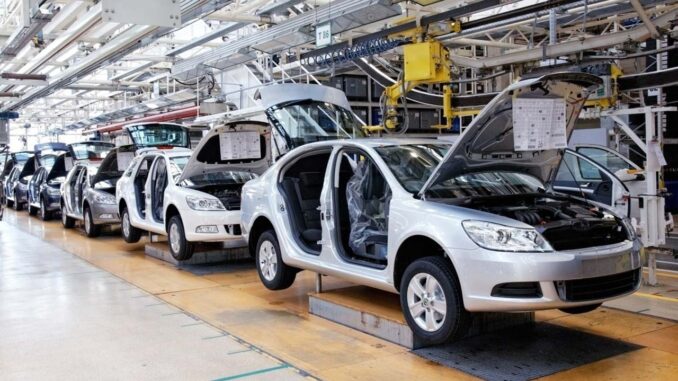
Despite the Covid-19 pandemic, African Association of Automotive Manufacturers (AAAM) has estimated that new-vehicle sales in sub-Saharan Africa can grow from around 100 000 a year, outside South Africa, to around two-million a year in the next 15 years.
According to AAAM, there is an opportunity coming out of the pandemic in that around the world, organisations may want to diversify their sourcing.
Chief Executive Officer of the association, Dave Coffey, said globally, companies would consider localising and regionalising supply chains and new forms of technology. What is also important is that used cars occupy more than 80 per cent of vehicle sales in Africa.
“I see this high percentage of used cars as an opportunity, because we come off such a low base of new-vehicle sales that even in the post COVID-19 environment new-car sales will grow in the right automotive ecosystem. A big part of the AAAM’s current focus is to create this right automotive ecosystem.”
To do this, there are a number of key policy drivers that must be addressed in Africa’s automotive markets, says Coffey.
“There are many facts out there that show that there is great opportunity in Africa, from a growing population to a growing middle-class to growing gross domestic product.
“In Africa we have a median age of under twenty, whereas in Europe this is in the forties. And I do want to mention the motorisation rate. There is low vehicle density in Africa, at 42 vehicles per 1 000 inhabitants. This is substantially lower than the global average of 180. America is on 830 and Europe is about 580.
“So, there is huge opportunity for growth and job creation, as long as there are effective automotive ecosystems.”
It is absolutely critical that an African country wishing to start up an automotive assembly and sizeable new-car sales industry has the political will to introduce an effective automotive policy, says Coffey.
“That is the starting point. And this is where I applaud the Ghanaian government for approving their Customs Amendment Bill in Parliament in March this year.”
As used cars occupy more than 80 per cent of vehicle sales in Africa, there is an ageing fleet in the heart of Africa, notes Coffey.
“This results in safety challenges where Africa has the highest per capita road fatalities in the world. According to the World Health Organisation this is expected to increase by 112 per cent by 2030.
“Reducing second-hand and grey-vehicle imports are key to driving new-vehicle demand. Africa is used as a dumping ground for used vehicles. So, limiting or managing second-hand vehicles is important to ensure safety and to support the manufacturing and assembly of vehicles.”
Coffey said the AAAM understands that African governments cannot “just switch off” the flow of imported second-hand vehicles.
“However, it is important that we, over time, move towards creating a second-hand car market from the sale of new vehicles.” Equally important to creating an automotive industry is legal certainty and political predictability, adds Coffey.
“Investors need confidence. A stable regulatory framework is, therefore, required, and where applicable, certain aspects need to be passed into law.”Other drivers for developing an auto policy and effective industrialisation involve more conventional investment drives and incentives, with “clear criteria” for auto makers to register and enjoy the benefits of an auto policy.
“Obviously standards, vehicle homologation, identification are also important,” says Coffey.
“We need to avoid those that are not serious about the real industrialisation in Africa,” he adds. “To that point the assembler should be an original equipment manufacturer (OEM, or vehicle manufacturer), or supported by an OEM, thus enabling technology transfer and competitiveness.”
Other challenges that need engagement with African governments as new automotive industries are developed include infrastructure, the quality and standard of fuel, as well as foreign exchange to fund imports.
Coffey says the AAAM is working with Ghana, Nigeria, Kenya and Ethiopia to look at the establishment of auto sectors in these countries.
“Egypt is busy with the approval of an auto policy, which will be in Parliament soon,” says Coffey.


Be the first to comment